Gender Identity- Staff Conversations #7

Last week was the 7th installment of Staff Conversations, a series developed by the Equity and Justice committee consisting of staff from UW Botanic Gardens and Arboretum Foundation. The goal of Staff Conversations is to move our organizations towards more equitable and inclusive programs, organizations and practices by engaging staff in the discovery, learning and implementation of equitable and antiracist practices.
Read moreFeatured Plants from the Washington Park Arboretum
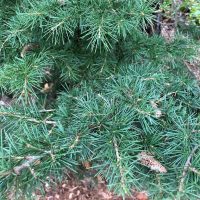
1) Cedrus libani ‘Nana’ Dwarf Cedar of Lebanon
Cedar of Lebanon forests once covered vast areas of the eastern Mediterranean, but 5,000 years of human impacts have left wild populations restricted to mountainous regions of Turkey, Syria, and Lebanon.
The resin from the Cedrus libani was used by Egyptians for embalming their dead.
This dwarf cultivar usually grows to about 15 feet tall and wide, while the species can reach over 100 feet tall.
Selected Plants from the Pacific Connections Garden-New Zealand Forest
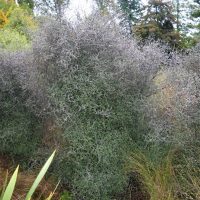
1) Corokia cotoneaster Wire-netting Bush
The common name of this species of Corokia aptly describes its wiry branches and tangled growth form. Growing into a dense bush of 1-3 meters, it has small dark-green or bronze leaves.
A native of New Zealand, C. cotoneaster is found in dry and stony places throughout its homeland, and is extremely tolerant of dry and exposed conditions.
The Weekly Dirt 10.27.21
10.27.21
Around The Farm
It is nearly time to put the farm to bed by seeding the earth with a green quilt of clover, vetch, rye, peas and phacelia. Over-wintering crops will keep in the field, through rain, sleet, and snow. The scarlet and emerald kale and collards are tougher than any frost. Bunches will be plucked every week through the new year bound for the food pantry and UW Dining services.
Union Bay Watch: Footsteps

Due to the volume of daily visitors at the Union Bay Natural Area (UBNA) even footsteps need to be limited to the approved gravel trails.
Read moreSelected Plants From the Garden of Dr. Wott

Although Dr. John A. Wott, retired Professor Emeritus, Urban Horticulture at the University of Washington and former Washington Park Arboretum Director, recently passed at the age of 82, his work and his plants continue on at the Arboretum. His garden was full of rare, unusual, and fascinating plants and these are a few of the plants that were donated to the Arboretum by Dr.
Read moreOctober 2021 Plant Profile: Sassafras albidum
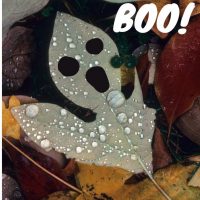
Happy October! As Halloween and spooky season approaches, the best way to celebrate is to visit the Washington Park Arboretum and check out our sassafras. These trees are quite festive as they display leaves shaped like little ghosts (or mittens depending on your viewing angle)! Leaves can have a different number of lobes ranging from 1-3 on the same plant.
This deciduous tree displays vivid colors of fall foliage in yellow, orange, red, and pink.
Indigenous Peoples’ Day
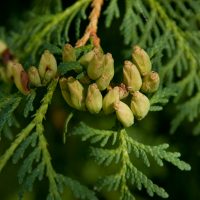
Today is Indigenous Peoples’ Day. The UW Botanic Gardens celebrate and honor the original stewards of this land.
Read moreFall Selections at the Washington Park Arboretum
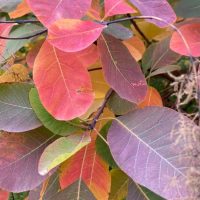
1) Cotinus obovatus American Smoketree
One of the earliest and most stunning of fall color plants, the leaves of Cotinus obovatus become a palette of orange, purple and crimson.
One specimen can be seen along Arboretum Drive, just south of the Graham Visitor Center. Another specimen that is already in full glory is located on Azalea Way near the southern intersection of the Arboretum Loop Trail.
Rare Plants and a Changing Climate
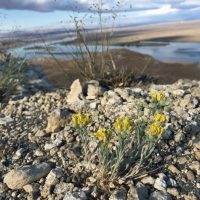
By Maya Kahn-Abrams
Over the past five months I have been immensely privileged to work on several of Rare Care’s projects restoring our beloved native rare plants all over Washington state. From hot July afternoons helping map shimmering meadows of pink Wenatchee Mountains checkermallow (Sidalcea oregana var calva) and purple Wenatchee larkspur (Delphinium viridenscens), to epic early mornings counting baby seedlings of White Bluffs bladderpod (Physaria douglasii ssp.